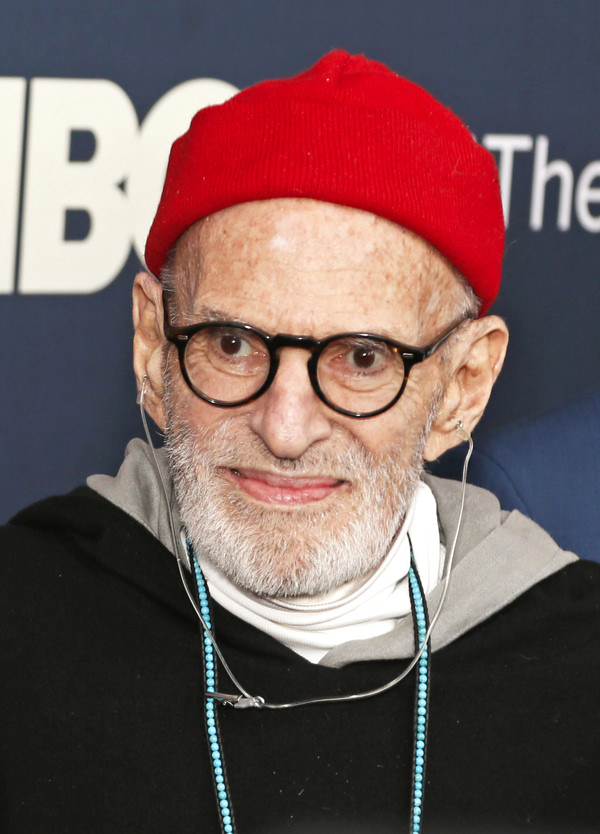
Playwright and legendary AIDS activist Larry Kramer died yesterday at the age of 84, having lived a life much longer than the one he supposed for himself at one time. Every queer man alive today owes him a debt of gratitude. Few people fought as hard and as long as he did to keep their community alive – and because the LGBTQ+ community is alive, thriving, and expanding its understanding of itself is a tribute in large part to Kramer’s life and work. It’s not hyperbole to say we would not have survived the 20th Century without him.His life and work is so large, so important, so likely to continue resonating for decades to come, that part of us feels like we aren’t worthy to eulogize or contextualize him. There are far better pieces written and even yet to be written about him than anything we could say here.
Co-founder of both the Gay Men’s Health Crisis and the Aids Coalition to Unleash Power (ACT UP), as well as the author of one of the earliest and most important plays to deal with the AIDS crisis, The Normal Heart – the fact of those accomplishments would be enough to eulogize him, but for us – and we think for so many other queer people who grew up at a time when we were seen as outcasts, pariahs, and perverts; when our shame was ingrained in us from the second we learned what we were – Larry Kramer’s righteous, unbowed fury was a tonic and a map to the way forward. A disenfranchised people can never even think of being free to live their lives openly when they’re taught that they deserve their chains. “I know that unless I fight with every ounce of my energy, I will hate myself,” he wrote. The pureness and power of his rage was that it came from a place of self-love.
In the decade following the Stonewall Riots, the gay community made historic strides forward not only in legal protections, but in self-acceptance. The seventies were a decade in which gay people, for the very first time, could live their lives freely and openly without fear of being jailed or institutionalized. When the AIDS Crisis hit in the early ’80s, it hit a community that had only recently begun to find its voice and celebrate its existence. The public response to AIDS – which was to ignore it and turn their backs on the dying – was enough to get a whole bunch of closet doors shut again, to make queer folks afraid to live. Larry’s anger wasn’t just a call to arms. It was a cri de coeur for a whole community; a voice screaming out that you are worthy, that your life is worthy, and that both are worth getting a little ugly if you have to.
The New York Times, in their post-mortem writeup of his life, described him as “abusive,” and opined that “his controversial approach could sometimes overshadow his achievements,” which set off a round of angry recriminations yesterday. We can’t help thinking how weirdly appropriate that is. While it’s true that Larry gained a reputation for being difficult and combative over the years (going to war against media outlets like the New York Times repeatedly), what makes the Times’ assessment of his life and work so darkly amusing is that in trying to sum up his work and life, they inadvertently explained its importance. No, his approach did not overshadow his achievements. Not even close. Given the times, the circumstances, and the history of the gay rights movement, Larry Kramer’s combative, angry, argumentative, and yes, possibly even abusive temperament WAS his achievement. And every single queer person alive today has benefited from it.
He died in the middle of another pandemic, which could be seen as a sadly depressing fact, but Larry had a pragmatic streak underlying his fury. “The work never stops,” he would often say. “The fight’s never over.” Take his rage. Keep it in your heart today because the battles are still going and Larry understood better than most the need to fight unceasingly and without the slightest hint of apology. Continue the work. Keep up the fight. Honor his legacy.
[Photo Credit: PR Photos]
Miu Miu Pre-Fall 2020 Collection Next Post:
One Iconic Look: Anne Hathaway in Chanel in “The Devil Wears Prada” (2005)
Please review our Community Guidelines before posting a comment. Thank you!


